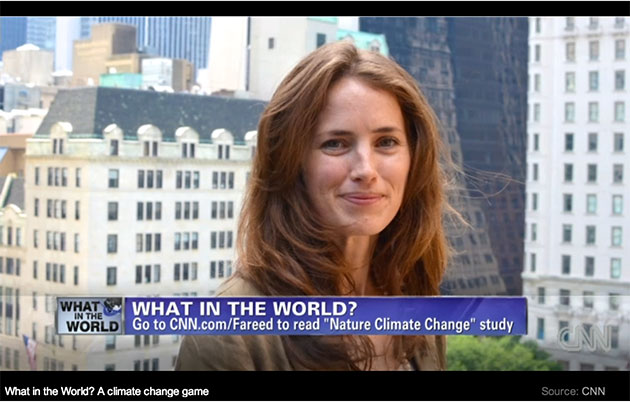For this study, we were interested in time's effect on cooperation. Temporal discounting undermines sustainable resource use—we've known that ever since UBC mathematician Colin Clark published his paper titled "The economics of overexploitation" in 1973 in Science showing that self-interest wasn't the only thing to undermine cooperation and lead to overexploitation of a resource—even under private ownership resources could be exploited due to high rates of discounting.
Since then, many experiments have shown our bias toward instant gratification, and Thomas Schelling has discussed intergenerational discounting with regards to energy use and climate. But our study is the first to test discounting in a group setting.
In behavioral experiments about climate change to date, the set-up was optimistic: participants have received both the benefits of defection and the rewards of cooperation immediately following the experiments. Yet in most real-world collective-risk dilemma, and particularly climate change, the gains from defection can often be realized quickly, but the rewards of cooperation may be delayed by decades.
In our experiment, we gave participants 40 Euros each to invest, as a group of six, towards climate change actions. If participants cooperated to pool together 120 Euros for climate change, returns on their investment in the form of 45 additional Euros each were promised one day later, seven weeks later, or were invested in planting oak trees, and thus would lead to climate benefits several decades down the road—but not personally to the participants.
Although many individuals invested initially in the long-term, intergenerational investment, none of the groups achieved the 120-Euro target, although one group of the 11 total got as close as 116 Euros.
In a sense, this shows real promise because our experimental was set-up was such that all players were anonymous and punishment and reward weren't available, which means that groups were likely not as cooperative as they would have been if we had introduced the possibilities of punishment, reputation, and even the threat of shame or the promise of honor.
This study confirms our desire to satisfy our desires for the now, rather than the future. But moreover, it represents an advance in experimental design, which we can use to test what kinds of interventions can lower group discount rates and allow us to cooperate to preserve natural resources for future generations.
STUDY SHOWS THAT HUMAN BEING ARE TOO SELFISH TO FIX CLIMATE CHANGE
A new study shows that human beings are too selfish to endure present pain to avert future climate change. That's why we need win-win solutions now

QUICK PROFITS BEAT SAVING THE WORLD
Should you invest today in order to leave future generations a healthy planet? Or is money more sexy in your own pocket? An experiment illustrates how people decide this election. For environmental protection, it is not good news.






